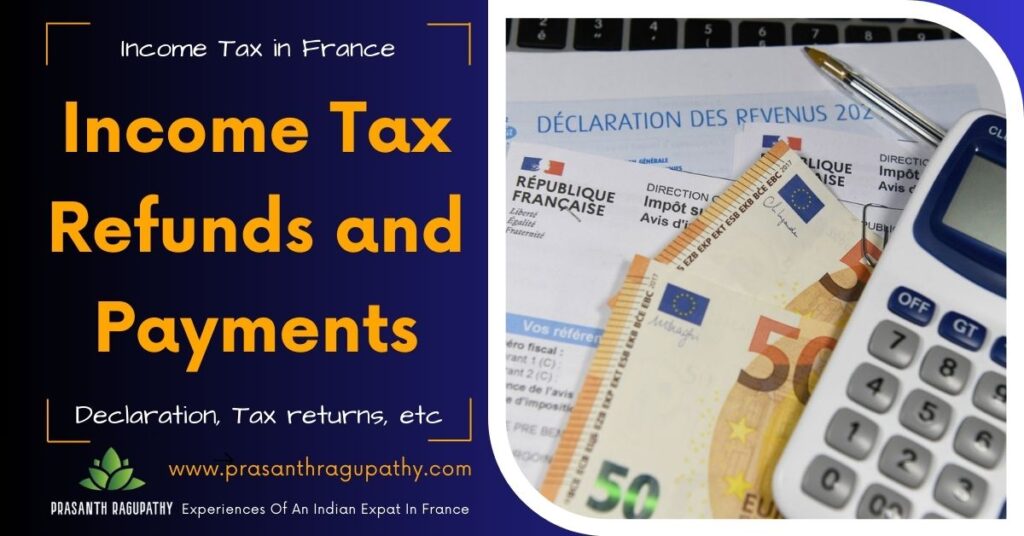Published on: September 14, 2024 | Written by: @rprasanth_kumar
Life events like losing your job, divorce, or inflation can cause financial problems. If you’re having trouble paying your tax dues in France, whether it’s due in one payment or four installments, you can ask for extra time to pay, or in rare cases, a tax reduction.
If your tax balance is over €300, the government offers an automatic installment plan, allowing you to pay in four parts on September 26, October 25, November 25, and December 27, 2024. However, if this isn’t enough to help, and you are unable to pay your income or property tax “taxe foncière”, you can request an extension or exemption from the tax office.
Related Articles,
How to ask for more time to pay?
You can request a payment extension,
- Online: Log in to your account at impots.gouv.fr, go to “messagerie sécurisée“, click on “écrire, then click on “j’ai un problème concernant le paiement de mes impôts“, then “j’ai des difficultés pour payer” and follow the steps.
- In person: Visit your local tax office and submit a request.
Your offline application for extension must include,
- A completed “payment difficulties” form, questionnaire difficultés de paiement “N°4805-AP-SD”.
- Your tax return “avis d’impôt”.
- Your bank account details “RIB”.
- Proof of financial hardship and the circumstances (e.g., pay slips, rent, bills).
Applications are assessed on a case-by-case basis, with an individual approach to the taxpayer’s situation.
What if you absolutely can’t pay your taxes?
If more time to pay isn’t enough and you still can’t pay, you can ask for a tax reduction (called a “remise gracieuse“), as per Article R*. 247-1 du livre des procédures fiscales (LPF). This is only granted in rare, exceptional cases. You can request a reduction for all or part of the tax, either online or by post or by visiting your local tax office.
In your request, include your details and the tax in question. It’s recommended to attach the “payment difficulties” form and supporting documents mentioned earlier.
The tax office will consider your request based on:
- Unexpected income loss (like unemployment).
- Exceptional situations (death, separation, disability, or illness).
- Whether your tax debt is too high compared to your income.
In practice, actual payment capacity is assessed on the basis of the following criteria,
- Taking into account your assets and all the resources of the people living with you currently, taxable or not (social allowances, municipal aid, RSA, etc), permanent or temporary.
- Taking into account the expenses essential for the daily life of the family home: food, health, insurance, housing (rent or equivalent if bank loan, heating, lighting), transport costs between home – place of work. These expenses must be justified with proofs.
- Ensuring that your expenses are commensurate with your resources and the composition of your household. Reasons for spending beyond financial capacity are examined (particular events or lifestyle choices, the latter reason excluding any discount or moderation).
- Assessing the extent of your tax debt: the administration ensures that payment periods cannot be sufficient to settle the debt. It shall take into account, where appropriate, the origin and nature of non-tax debts, in particular in the case of over-indebtedness.
Key things to know
- Payment extension or reduction requests are usually processed in 2 months. If you don’t get a response by then, assume it was denied.
- For complex cases, this may take up to 4 months. In this case, the administration must inform you of this additional time before the expiry of the initial 2 months.
- The “remise gracieuse” application does not entitle the applicant to a stay of payment. So, the public accountant is authorized to take actions for non-payment of tax.
Important note
Approval for a reduction or partial waiver may depend on,
- Paying off any other outstanding taxes.
- Completing overdue tax returns.
- Dropping any legal disputes about the taxes in question.
Support This Blog!
If you’ve found my articles helpful, interesting or saving your time and you want to say thanks, a cup of coffee is very much appreciated!. It helps in running this website free for the readers.
Sources & References 📕
- Quelles démarches effectuer pour demander un délai de paiement?
- Comment faire une demande de remise gracieuse?
- Quelles solutions vous sont proposées en cas de difficultés à payer vos impôts?


